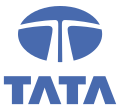Dorabji Tata: Difference between revisions
No edit summary |
→Non-business interest: mention politics |
||
| Line 34: | Line 34: | ||
==Non-business interest== |
==Non-business interest== |
||
Dorabji was extremely fond of sports, and was a pioneer in the Indian Olympic movement. As President of the [[Indian Olympic Association]], he financed the Indian contingent to the [[1924 Summer Olympics|Paris Olympics]] in 1924. |
Dorabji was extremely fond of sports, and was a pioneer in the Indian Olympic movement. As President of the [[Indian Olympic Association]], he financed the Indian contingent to the [[1924 Summer Olympics|Paris Olympics]] in 1924. The Tata family, like most of India's big businessmen, were Indian nationalists but did not trust the Congress because it seemed too aggressively hostile to the Raj, too socialist, and too supportive of trade unions.<ref>Claude Markovits, ''Indian Business and Nationalist Politics 1931-39: The Indigenous Capitalist Class and the Rise of the Congress Party'' (Cambridge University Press, 2002) pp 160-66 </ref> |
||
==Deaths== |
==Deaths== |
||
Revision as of 22:51, 22 February 2012
Dorabji Tata | |
|---|---|
| Born | 27 August 1859 |
| Died | 3 June 1932 (aged 72) |
| Nationality | Indian |
| Alma mater | Gonville and Caius College, Cambridge |
| Occupation | Entreprenuer |
| Known for | Founder of Tata Steel Founder of Tata Power Founder of Tata Chemicals |
| Spouse | Meherbai |
| Children | none |
| Parent | Jamsetji and Hirabai |
Sir Dorabji Tata (Gujarati: દોરાબજી તાતા; 27 August 1859 – 3 June 1932), was an Indian industrialist and philanthropist, and a key figure in the history and development of the Tata industrial empire. Dorabji Tata was knighted in 1910 for his contributions to industry in British India. At the time of death, his networth was estimated at $150 million.
Birth and education
Dorab, or Sir Dorabji, as he was later known, was the elder son of Hirabai and Parsi Zoroastrian Jamsetji Nusserwanji Tata. He received his primary education at the Proprietary High School in Bombay (now Mumbai) before travelling to England in 1875, where he was privately tutored. He entered Gonville and Caius College, Cambridge in 1877,[1] where he remained for two years before returning to Bombay in 1879. He continued his studies at St. Xavier's College, Bombay, where he obtained a degree in 1882.
Upon graduating, Dorab worked for two years as a journalist at the Bombay Gazette. In 1884, he joined the cotton business division of his father's firm. He was first sent to Pondicherry, then a French colony, in order to determine whether a cotton mill might be profitable there. Thereafter, he was sent to Nagpur, in order to learn the cotton trade at the Empress Mills which had been founded by his father in 1877.
Marriage
He was then sent to Mysore State, where he was advised to call on Dr. H. J. Bhabha, the first Indian Inspector-General of Education (He is different from Homi J. Bhabha). Dorab did so, where he met Bhabha's daughter Meherbai, whom he married in 1897.
Business legacy
Dorabji was intimately involved in the fulfilment of his father's ideas of a modern iron and steel industry, and agreed to the necessity for hydroelectric electricity to power the industry. Dorab is credited with the establishment of the conglomerates Tata Steel in 1907 and Tata Power in 1911, which are the core of the present-day Tata Group. Dorabji is known to have personally accompanied the mineralogists who were searching for iron fields, and it is said that his presence encouraged the researchers to look in areas that would otherwise have been neglected. Under Dorabji's management, the business that had once included three cotton mills and the Taj Hotel Bombay grew to include India's largest private sector steel company, three electric companies and one of India’s leading insurance companies.Founder of New India Assurance Co Ltd. in 1919, the largest General Insurance company in India
Non-business interest
Dorabji was extremely fond of sports, and was a pioneer in the Indian Olympic movement. As President of the Indian Olympic Association, he financed the Indian contingent to the Paris Olympics in 1924. The Tata family, like most of India's big businessmen, were Indian nationalists but did not trust the Congress because it seemed too aggressively hostile to the Raj, too socialist, and too supportive of trade unions.[2]
Deaths
Meherbai Tata died of leukaemia in 1931 at the age of 52. Shortly after her death, Dorabji established the Lady Tata Memorial Trust to advance the study into diseases of the blood.
On March 11, 1932, one year after Meherbai's death and shortly before his own, he established a trust fund which was to be used "without any distinction of place, nationality or creed," for the advancement of learning and research, disaster relief, and other philanthropic purposes. That trust is today known as the Sir Dorabji Tata Trust. Dorabji additionally provided the seed money to fund the setting up of India's premier scientific and engineering research institution, the Indian Institute of Science, Bangalore.
Dorabji died in Bad Kissingen, Germany on June 3, 1932, at the age of 73. He is buried alongside his wife Meherbai in Brookwood Cemetery, England. They had no children.
See Also
References
- ^ "Tata, Dorabji Jamsetji (TT877DJ)". A Cambridge Alumni Database. University of Cambridge.
- ^ Claude Markovits, Indian Business and Nationalist Politics 1931-39: The Indigenous Capitalist Class and the Rise of the Congress Party (Cambridge University Press, 2002) pp 160-66
Further reading
- Choksi, R. "Tata, Sir Dorabji Jamshed (1859–1932)" in Oxford Dictionary of National Biography (2004) accessed 28 Jan 2012, a brief scholarly biography
- Nomura, Chikayoshi. "Selling steel in the 1920s: TISCO in a period of transition," Indian Economic & Social History Review (January/March 2011) 48: pp 83-116, doi:10.1177/001946461004800104

